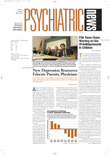Health and mental health workers in southern Asia have observed varying degrees of psychological trauma in several communities hard hit by the December 2004 tsunami, according to the World Health Organization (WHO).
A physician who directs regional operations for the WHO in affected regions of Asia reported that normal grief over the loss of loved ones has been compounded by the loss of homes, livelihood, and entire community networks, according to a WHO press release.
“Many can cope and will gradually come to terms with what has happened. But many others will sit motionless or cry for hours on end. If support is not urgently provided, the long-term effect on these populations could be terrible,” Samlee Plianbangchang, M.D., WHO regional director for South-East Asia, said in the release.
The situation is further exacerbated by an acute shortage of health workers trained in mental health care and counseling. In Banda Aceh, Indonesia, near the epicenter of the earthquake that triggered the tsunami, more than 150 people worked at the psychiatric hospital before the tsunami. After the disaster the staff was down to one psychiatrist, three trained counselors, and six nurses.
The WHO recommended that community-based workers from the region should provide psychosocial support because they understand the needs and culture of disaster victims.
“Importing psychiatrists from other regions to talk to the bereaved isn't an appropriate response,” the WHO statement emphasized.
To coordinate the training of community workers in India, the WHO is working with United Nations agencies including UNICEF, nongovernmental organizations, and local field representatives of these organizations.
Using standardized manuals, the WHO training will involve role playing and empathizing with victims, providing support, and encouraging victims to talk about their problems.
The WHO is also rapidly increasing its support to other tsunami-affected countries and implementing recommendations in the “WHO Guidelines for Mental Health in Emergencies.”
The guidelines call for increased community outreach, particularly taking into account the special needs of populations such as children, women, the elderly, and the severely injured, that incorporates a culturally appropriate approach for each region.
Soon after the tsunami, the organization sent four mental health experts to Sri Lanka and Indonesia to work with local psychiatrists and mental health professionals, as well as ministries of health, on implementing psychosocial training in hard-hit communities. The WHO stated that the components that make up the training honor the dignity of survivors, identify potentially high-risk populations, help survivors reunite with friends or family, and provide self-help materials that could aid victims in reestablishing a more normal life.
In a province in Thailand, for example, local authorities are rotating 80 mental health workers on a weekly basis to support devastated communities.“ Many people are suffering emotional aftershocks. We saw a son who was extremely distressed at not having been able to save his father from the force of the tsunami. Such people urgently need a support system to help them cope with this traumatic experience,” said Aphaluck Bhatiasevi of WHO in Thailand, in the press release.
Information on the WHO's response to the Asian tsunami disaster is posted online at<www.who.int> and<www.whosea.org>.▪
